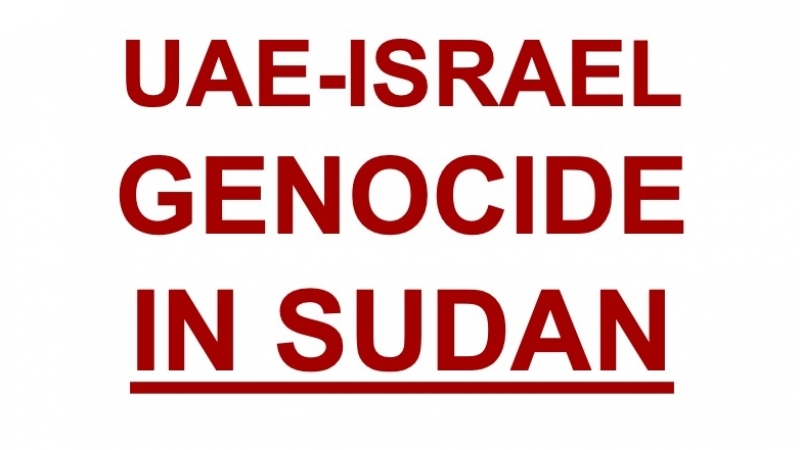African Union-led, not western imposed solution for Sudan
Empowering Weak & OppressedCrescent International
Shawwal 14, 1444 2023-05-04
Daily News Analysis
As fighting between two corrupt militant factions continues in Sudan, the western corporate media’s framing of events has managed to dominate the informational space.
To understand the strife correctly, it is important to step outside the western pundits’ information narrative.
The corporate media’s framing frequently focuses on the “Islamist” factor in the current fighting in Sudan.
It is between the military junta and the breakaway faction referred to as the Rapid Support Forces (RSF), led by General Mohamed Hamdan Dagalo.
The mention of ‘Islamists’ in Sudan has some historical basis but mostly as an ideological backstory.
Western secular narrative over emphasizes governance mistakes and malfunctions of socio-political forces in the Muslim world which identify as Islamic.
Religion is by default regarded as a regressive force in contemporary western societies and its ruling elite.
It is, therefore, portrayed in a negative light and plays into the western ideological bias.
While Sudan’s political landscape does have Islamic roots, the current crisis has nothing to do with the narrative of Islamic vs non-Islamic.
The military junta in power did acquire power in alliance with various Islamic factions many years ago, the most famous of which was led by the Sudanese Islamic leader, Dr. Hassan al-Turabi.
It was similar to how secularist autocrat Abdel Fattah el-Sisi overthrew President Mohamed Morsi with the backing of a Wahhabi outfit, the Nour Party and other manipulated Islamic factions.
Overall, Sudan’s contemporary socio-political experiments of the past 50 years should serve as a practical guidebook for many Muslim activists and societies on how not to conduct politics.
The alliance between Hassan al-Turabi and the military faction led by General Omar al-Bashir was a top-bottom approach of putting forward an Islamic governing model, yet, if analyzed carefully, its methodology was rooted in a western model of politics.
There is no place for a military-run system in Islamic governance.
It is a US model, that was invented to subordinate South America and to uphold the Monroe Doctrine, an arrogant construct, in that region.
Later, it was exported to other developing countries during the cold war era.
The so-called “pragmatic” acceptance of the military governance formula rooted in non-Islamic theory has created myriad theoretical contradictions in Sudan.
This has manifested itself in ugly ways practically as well.
Internally, Sudan’s governance regressed into a kleptocracy which triggered a civil war and partition of the country.
On the foreign policy front, Sudan turned into a doormat for neo-colonial designs in Africa.
In September 2014, under a fabricated pretext that Iran is spreading Shia Islam in Sudan, the military junta closed Iranian cultural centre in Khartoum.
Even western media outlets, which are keen to promote the sectarian narrative in the Muslim world, did not buy into this fabrication.
In 2015, the RSF while still part of the ruling clique, sent thousands of Sudanese to become cannon fodder in the western-backed Saudi aggression against Yemen.
While the ongoing crisis, like most political crises in the world, is rooted in domestic issues, the external aspect of Sudan’s crisis cannot be ignored either if one wants to understand the situation properly.
In February 2023, Sudan’s military regime agreed to allow a Russian naval base on its Red Sea coast.
Considering that the RSF leader is supported by the UAE and Israeli security establishment, both with close ties to NATO regimes, it would be naïve to assume that eruption of fighting is merely a coincidence two months after the agreement with Russia.
Dagalo’s faction broke away from the governing junta and plunged the country into chaos.
While it is unclear how events will unfold, a prolonged war in Sudan may negatively affect Africa’s growing economic potential.
It will rewind the situational clock on the continent back to the cold war era.
This would be catastrophic for Africa.
To avoid this scenario, the African Union must muster political courage and take decisive action on Sudan on its own terms with local realities in mind.
No external power, be it Russia, China or the west, will uphold Africa’s interests.
The sooner local African NGOs, statesmen and intellectuals push for an Africa-led initiative to resolve the crisis in Sudan, the less trouble the continent is likely to experience.


